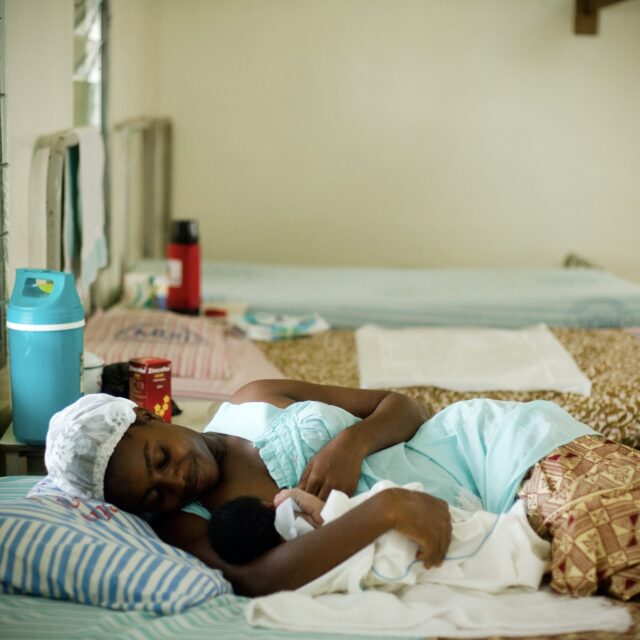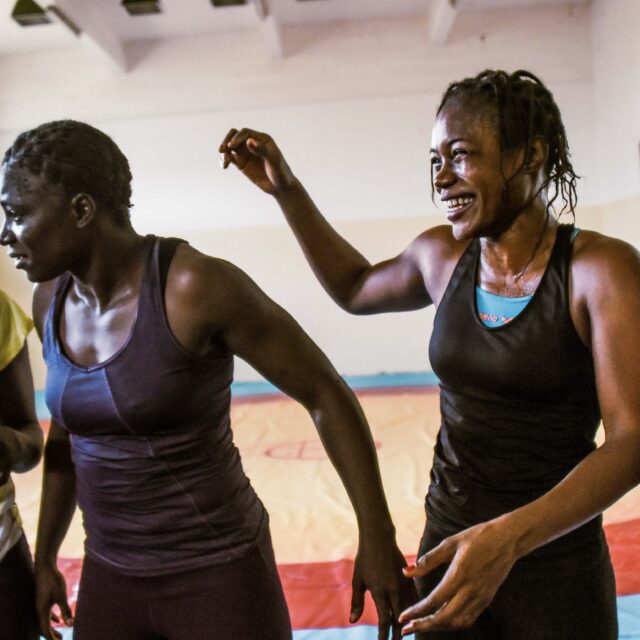Healthcare is being hit hard by the pandemic. COVID-19 has disrupted services for the prevention and treatment of noncommunicable diseases, could disrupt essential interventions for malaria, and has put an enormous amount of pressure on health systems.
But, as we’ve seen with education and work, the pandemic could have an even greater, disproportionate impact on healthcare for women and girls, specifically maternal, reproductive, and contraceptive care.
Here’s why.
Previous health crises impacts on women and girls’ health
Prior to COVID-19 in 2017, over 800 women died daily due to pregnancy and childbirth-related causes that were preventable, and at least 10 million unplanned pregnancies happened yearly for girls ages 15-19 in developing countries This already poor situation, compounded by a pandemic and increased limited access to resources, could lead to grim outcomes.
The world has already seen how a major health crisis and cutbacks in healthcare can severely impact maternal and contraceptive care, particularly in low- and lower-middle-income countries, where 94% of maternal deaths occur (largely due to infection, blood loss, high blood pressure, unsafe abortions, and other underlying issues) and where approximately 12 million girls between the ages of 15-19 give birth every year. This is because during health crises, there is a reallocation of health resources.
Prior to the 2014-2016 Ebola outbreak, Sierra Leone’s maternal death rate had decreased by more than 50% since 1990 and “some level of antenatal care was almost universal.” But that progress was set back by the Ebola outbreak.
In Sierra Leone, Liberia, and Guinea, there was a massive spike in the maternal mortality ratio, which is the number of maternal deaths per 100,000 live births during the same time period. This was because women avoided medical facilities “due to quarantine restrictions or misconceptions about the virus [and] transmissions.” The end result was women having home births, which are far riskier for maternal health, as home births don’t allow for as many maternal interventions as hospital births. And as for contraceptive care, the outbreak “resulted in sharp declines in contraceptive use and family planning visits in Guinea, Liberia and Sierra Leone.”
Even more so, during the outbreak, reproductive and sexual health resources were re-allocated instead to emergency response resources, thus cutting back the resources available for these essential services for women.
All of this led to the United Nations Population Fund projecting that the Ebola outbreak would lead to “120,000 preventable maternal deaths.”
COVID-19 could have an even more grave outcome.
COVID-19’s impact on women’s health care
COVID-19 is threatening to prevent approximately 49 million women and girls from having access to contraceptives and up to 15 million unplanned pregnancies if lockdown lasts a year.
Even more so, pregnant women often require a number of essential services from prenatal to postnatal care. But when the fear of putting your own and your child’s health at risk to go to a clinic or medical facility comes into play, the results can be drastic. This is particularly true in developing countries, where women already have a 1 in 45 chance of dying from a maternal cause.
Right now, the pandemic is threatening to disrupt women’s access to sexual health and reproductive services and is “delaying transportation of contraceptive commodities.” Even more so, the pandemic is resulting in pregnant women giving birth at home, which can pose a number of risks for both the mother and child. And as it stands now, maternal care cutbacks could lead to the deaths of 113,000 women, particularly in low- and middle-income countries. COVID-19 could cause that number to drastically increase. Even without the pandemic, sub-Saharan Africa and Southern Asia accounted for 86% of maternal deaths in 2017.
But if governments and world leaders act now, these impacts can be mitigated.
The need to prioritize women’s healthcare
To mitigate the impact COVID-19 will have on maternal care and maternal mortality, government and leaders around the world must ensure that maternal care is prioritized. Doing so requires investments in health systems that both respond to the pandemic and make sure that maternal care and resources are in place. Doing so will ensure that expectant mothers receive the care that they need and everyone, everywhere can survive the pandemic.



